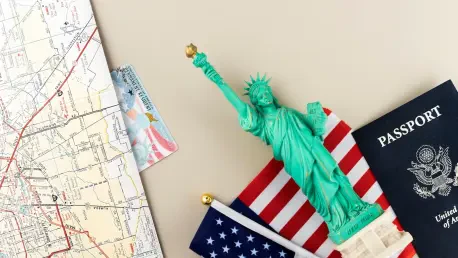Independence Day brings communities across the nation together for festivities that celebrate freedom and unity. However, recent developments in Southern California have cast shadows over these occasions. The impact of federal immigration raids has resulted in a significant number of community events being canceled, particularly affecting those with high percentages of Hispanic residents. This situation prompts an analysis of the intersection between immigration policies and their tangible effects on local traditions and gatherings.
Current State of Immigration Policies and Their Community Impact
Evolution of Immigration Policies and Enforcement
Immigration enforcement policies have seen shifts and changes in recent years, with a growing emphasis on raids and detentions. Data from recent enforcement actions reveal a notable increase in these activities, leading to heightened anxiety within communities that perceive themselves as targets. Agencies tasked with immigration enforcement have ramped up their efforts, citing security and legal objectives. These policy changes have affected cities across Southern California, revealing a disturbing trend in community reactions to federal actions.
Real-World Impact on Community Events
Federal immigration enforcement actions have directly impacted community events, causing widespread cancellations. Notably, the Gloria Molina Grand Park’s Summer Block Party, a vibrant gathering, has been postponed indefinitely due to safety concerns. In Cudahy, where the Hispanic population comprises 97%, celebrations slated for July 3 were delayed, although ongoing park activities continue as usual. Other communities like Bell Gardens have decided to cancel concerts and movie nights, demonstrating the prevailing sense of caution. These cancellations reflect the community’s response to perceived threats stemming from immigration policy actions, underscoring the tangible disruption caused by these federal initiatives.
Expert Insights on Immigration Policies and Community Responses
Industry specialists and community leaders have weighed in on these developments, offering diverse perspectives on the challenges induced by immigration policies. Experts argue that the enforcement activities instill fear within communities, creating an atmosphere of unrest and disruption during traditionally joyous periods. Leaders have emphasized the need for dialogue between policymakers and communities to address concerns and mitigate the adverse effects of the current enforcement climate. Their insights highlight the critical balance between security measures and the need to preserve community trust and cultural events.
Future Implications of Immigration Policies on Community Events
The trajectory of immigration policies indicates continued scrutiny and enforcement, likely impacting future community events. These policies pose challenges for planners aiming to maintain cultural traditions amid increasing uncertainties. Future implications point toward potential developments that could foster either collaboration or increased tension between enforcement entities and communities. The long-term effects could extend beyond cancellations, influencing attitudes toward community engagement and social cohesion. These considerations underscore the importance of establishing channels for communication and understanding moving forward.
Conclusion and Call to Action
The cancellation of community events due to immigration policy enforcement has highlighted the delicate interplay between federal actions and local traditions. These developments have reinforced the need for communities to adapt to an evolving enforcement landscape. Future considerations must focus on establishing a dialogue between policymakers and community organizers to ensure events can proceed without fear and disruption. The situation calls for proactive measures to protect cultural heritage while addressing legitimate security concerns, striving for a balance that respects both safety and communal spirit.









